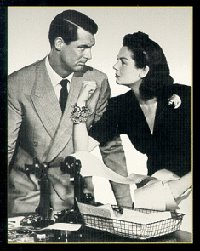 Instructor, Caroline Bender
Instructor, Caroline BenderNearly 30 years ago, a well-meaning (but now painfully outdated) book called Games Mother Never Taught You attempted to explain the mysteries of the male corporate world to us career gals. Among the skills we were advised to learn were "locker room talk" and the art of the sports metaphor.
Most days I think I fall back too easily on my sports metaphors, to the point of cliche. But recently I stumbled onto one which summed up for me an experience I had been trying to define and express for the past year.
I realized why I felt so crowded, so frustrated, so elbowed on the job. "I am a baseball player," I said to my Boss. "And this company... is basketball."
I enjoy the poetry of baseball -- the celebration of the individual player in the execution of a team success. Watching baseball puts me into a calm state of alertness, even as the tension builds toward the heartbreaking pop-up when the bases are loaded. But basketball is stressful to me. So much crowding under the basket -- the speed of the play from end-to-end, then back again. I've got the ball, no he does, now him! Whistles and squeaks and the thunder of giant athletes running at top speed.
Enough!
So it happened that in a project meeting where 15 people literally shouted for an hour over what should be done and how and when and by whom, I heard those sneaker squeaks and shot buzzers, and I recognized where I had felt this before.
I like to play my position when the ball comes to me, and get out of my teammate's way when the play is hers. Collision on the diamond is generally regarded as dangerous, and avoided as much as possible. The one guy who expects to take a hard mid-section hit is issued full body armor.
I want my manager to plan the line-up before the game starts. The manager and the coaches know which skills are needed from whom; they understand that the progression of skills matters. When they take care of the strategy, I can concentrate on the tactics of getting the game played.
The defense keeps control of the ball. No fumbles, no interceptions, no turnovers, no jump balls, no face-offs. Until you've had your allottment of plays, the other team has to wait. How I wish we could maintain that level of control over anything in the workday.
The rules of engagement are civilized and respectful. One of my favorite moments throughout any game is the friendly chat between the baserunner and the infielder as they wait for the next hit. Imagine man-to-man defense around that bag instead. It's enough to give you belljar.
Understand that this is not a problem I have solved. I am still out there everyday, cap on, punching a pocket into my glove with the shot clock running. I don't know the devil is going on most of the time. ("Guys...? Man off base. I'm open...?"). It was enough just to articulate the problem.
So this morning I went in search of a baseball team in need of a utility player. I'll let you know how it works out.
Watch this space. Batter Up.
~~CB








 10:30 PM
10:30 PM
 Caroline Bender
Caroline Bender


